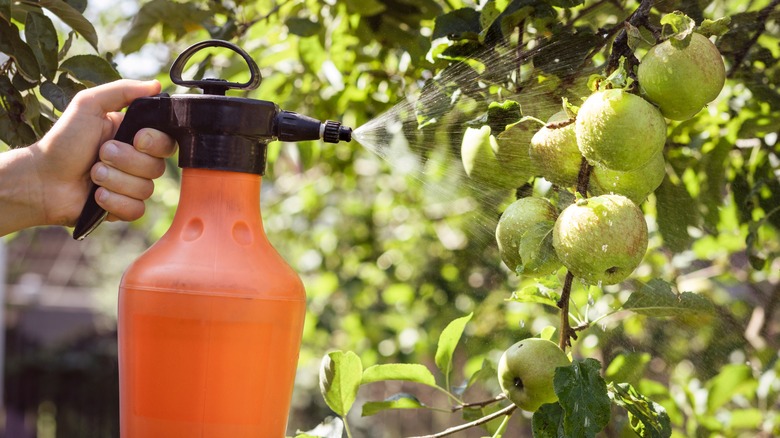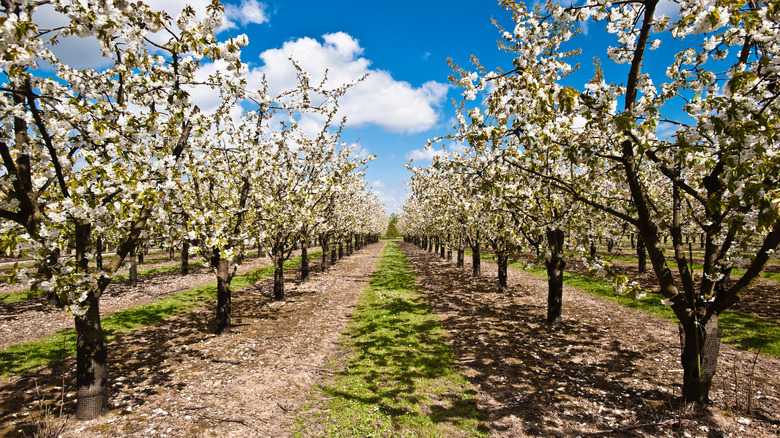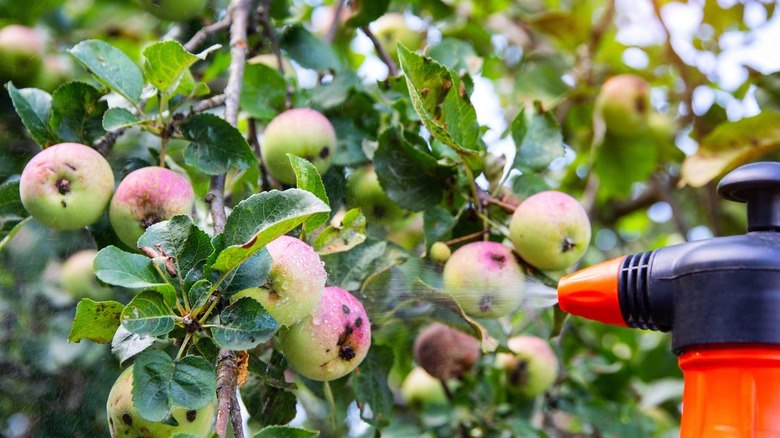This DIY Apple Tree Fertilizer Calls For Coca-Cola. Should You Try It?
Little did Coca-Cola inventor Dr. John S. Pemberton know that his 1886 creation would take on roles beyond refreshing thirsty consumers. From cleaning to killing bugs, there are so many surprising ways you can use Coca-Cola around the house. Beyond stain removal and ant traps, Coke's chemical mixture is trending as a gardening remedy too. Anecdotally promoted as food for potted plants and a booster for lawns, a new application popping up online is spraying apple tree leaves with the beverage.
Is this potential fertilizer worth a try on your apple tree? Home gardeners have been experimenting with Coke as a growth enhancer, and the images they share of glossy, lush plants are good advertisement for giving this trick a try. But, despite countless claims and convincing pictures, the research just doesn't support the use of Coke on apple trees — or any plants, for that matter. In fact, studies have shown that sugary sodas can do more harm than good.
Why shouldn't you spray Coca-Cola on your apple trees?
With sugars, acids, and minerals, sodas like Coke can seem like a magic elixir for plants. Some plant enthusiasts hint that the phosphorus in Coke can help apple trees flourish, while the sugars are absorbed by the leaves for a quick burst of energy. Although they caution that you should dilute the soda to mitigate Coke's acid content before spraying it on your trees, they see its high sugar levels as a plus for plant health.
Instead, take a cue from researchers at India's St. Steven's College who found that plants watered with sugary soda fared worse than the same species of plants when given just water. The sugars in Coke may also attract pests and diseases, as well as making it harder for plants to absorb water. Studies seem to confirm that using Coca-Cola on plants is a hack you should stay away from.
What spray should you try instead?
Steer clear of Coke in favor of science-backed remedies. Instead, mix up a spray with Borax, an unexpected staple that may be the key to thriving fruit trees. Experts at Washington State University share that apple growers in their region commonly use a foliar spray made with boron-rich Borax and water. This mixture is ideal for areas with soils that are dry, cold, have high a pH, and/or are excessively-drained. However, researchers noted that a Borax spray was more effective in areas where soils are low in boron.
Take advantage of this DIY spray for your apple trees in the fall rather than spring. University researchers noted that using this mixture in the fall resulted in better bloom quality and fruit set than when it was used in the spring. They also warn that too much boron can be toxic, and that one application per season should be enough.


